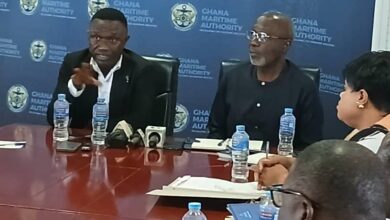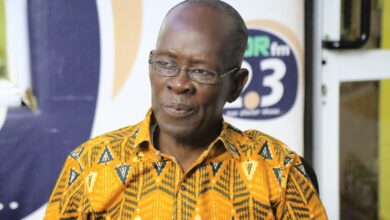
Ghana’s financial ecosystem has long operated under tight constraints. Frequently marked by fiscal slippages, the Bank of Ghana (BoG) in response has routinely stepped in as a quasi-fiscal backstop, absorbing shocks to stabilise the economy during periods of stress.
Its interventionist approach became particularly pronounced in the wake of the 2022 Domestic Debt Exchange Programme (DDEP), where the Central Bank acted as a shock absorber. That decision, however, remains a point of contention for the current Mahama administration.
In 2022, the BoG reported a record GH¢60 billion loss primarily due to impairments on government securities, loan exposures and exchange rate revaluations. In 2023, the loss narrowed but remained substantial at GH¢10.5 billion, driven largely by elevated costs associated with open market operations aimed at mopping up excess liquidity.
While these back-to-back losses have been justified in supporting macroeconomic stability and facilitating the debt restructuring efforts by the previous government, they have left the capital base of the Bank deeply eroded – pushing it into negative equity territory.
The indemnity now turns to recapitalisation. But Finance Minister, Dr. Cassiel Ato Forson will have none of it and has made it strongly clear – which is? That BoG finds its own resources to restore its balance sheet.
This position though debatable, is also a broader shift toward fiscal realism in an economy still recovering from the scars of past excesses. For the government, the self-reliance of BoG is both principled and non-negotiable.
Problematic government stance
Suffice to say, recapitalisation is not optional – here’s why and the very reason caution is crucial.
Under Section 7(4) of the Bank of Ghana Act (2002), if the profit of the Bank is insufficient to cover its losses, the government is legally obligated to issue redeemable and negotiable interest-bearing securities to the extent of the deficiency.
It’s untenable why the Finance Minister opposes this statutory mandate under the Bank of Ghana Act. Could it be a case of political brinkmanship or a principled stance on fiscal accountability in a stabilising economy with little room for a manoeuvre?
While it’s true the Central Bank may have overstepped its boundaries of monetary policy and venturing into quasi-fiscal activities, recapitalisation is only in the national interest especially when both the government and the BoG are committed to price stability, reduced systemic risks, contained inflation, sound FX regime and improved investor confidence in order not to undermine the inflation targeting mandate of BoG.
In many respects, restoring the balance sheet of the Bank should not even be about just a legal requirement, but a foresight and strategic imperative.
Operating with negative equity is not without precedent in global Central Banking. The Swiss National Bank posted a CHF132 billion loss in 2022 and the Bank of England is projecting a recapitalisation cost of £150 billion.
Drawing direct comparisons however can be misleading because these institutions are anchored by governments with robust fiscal capacity and strong institutional credibility which are advantages Ghana may currently be lacking. So, there is no room for complacency for Ghana.
Why there’s a risk
The solution calls for constructive dialogue and collaboration not division because a well-capitalised Central Bank is necessary for anchoring monetary policy credibility, maintaining investor trust and fulfilling regulatory obligations under the soon-to-be-completed $3 billion IMF-supported Extended Credit Facility (ECF) programme.
The International Monetary Fund (IMF), in one of its country report on Ghana outlined several alternatives for recapitalising the Bank of Ghana. Among the recommended options were the suspension of the following – profit transfers to the government, asset transfers, direct budgetary injections, issuance of marketable securities and the gradual rebuilding of equity through retained earnings.
To this end, the BoG and the Ministry of Finance in 2023 signed a Memorandum of Understanding to cease all monetary financing of the budget as a critical step toward restoring policy discipline.
However, while this commitment signals progress, questions remain around the implementation of the broader recommendations by the Fund. If the suspension of budgetary financing has been actioned, what about pursuing the remaining alternatives if they are real options to reversing the deteriorating capital position of the Bank?
If one puts all of these together, the core question is no longer whether the BoG should be recapitalised – but how, when and by whom? The answer – obviously points to a pragmatic, timely and government-led approach.
Probable solutions
Several prudent recapitalisation options exist if government feels constrained by limited fiscal space.
For starters, a phased approach may offer the most viable path forward. Rather than a full-scale capital injection, a multi-year plan linked to fiscal performance and reserve accumulation could ease the immediate burden and mitigate potential macroeconomic shocks.
Additionally, the government could leverage non-cash assets such as stakes in state-owned enterprises or anticipated mineral royalties to strengthen the balance sheet of the Bank of Ghana without adding to public debt or stoking inflationary pressures.
Development partner support also presents an avenue. Portions of multilateral financing could be ring-fenced for recapitalisation efforts in alignment with structural benchmarks and broader reforms. This must be subjected to parliamentary and civil society oversight for the sake of transparency and accountability.
What BoG can do
Well, if the government insists on its decision not to provide direct fiscal support either through statutory obligations and or strategic recapitalisation, then the BoG may need to chart its own path.
In such a scenario, the Bank could explore internal mechanisms, including asset revaluation, prudent reserve accumulation and retention of profits to gradually rebuild equity.
Cost containment could also play a role. Temporarily suspending dividend payouts from BoG-owned entities, rationalising operational expenditures and deferring non-essential allowances may free up internal financial resources to support capital restoration.
Direct engagement with development partners could yield non-debt support instruments tied to governance and reform outcomes. The Bank may also negotiate for the transfer of government equity stakes in strategic assets as a longer-term capital buffer which will avoid cash outlays and preserve macroeconomic stability.
Caution is crucial
The point is not complex. It simply is – any recapitalisation strategy must steer clear of debt monetisation or quasi-fiscal financing. Printing money under the guise of capital restoration would severely undermine credibility. Likewise, politically influenced, short-fixes and non-transparent approaches could erode trust in the independence of the Central Bank.
Whatever the case may be, commercial banks – many of which also incurred significant balance sheet impairments from the DDEP are watching developments closely. They have growing interest in whether the terms of the recapitalisation of their regulator will match the regulatory rigour applied to the broader financial sector.
Ghana cannot afford a relapse into inflation-driven economic turmoil or renewed exchange rate volatility. With the government touting an economic reset, a fragmented approach that shifts the burden solely on BoG obviously threatens long-term financial sector resilience.
The recapitalisation must not in any way weaken the very institution it aims to restore. It must be economically sound, politically credible and institutionally reinforcing. In the end, the role of the Bank of Ghana in anchoring price stability, supporting investor confidence and safeguarding financial system integrity in the country must still be intact.
Again, caution is crucial in BoG’s recapitalisation.




